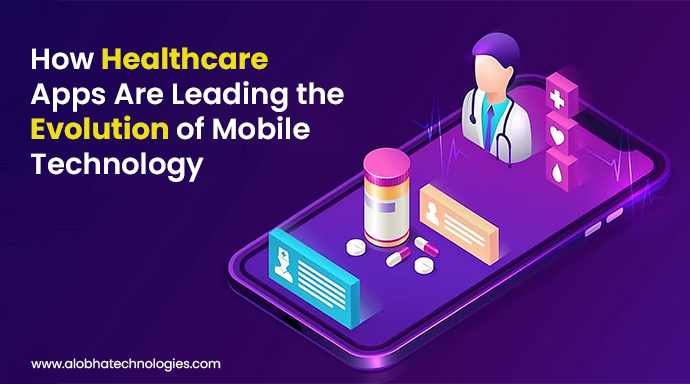
In an era dominated by technology, healthcare apps are emerging as a transformative force within the mobile development landscape. The intersection of healthcare and technology is reshaping the way patients access medical services, monitor their health, and interact with professionals. With an increasing focus on personalized care, convenience, and data analytics, the healthcare app market is positioned to lead innovation in the coming years.
The Growing Demand for Healthcare Apps
The demand for healthcare apps is skyrocketing due to several key factors:
1. Rising Smartphone Penetration
For mobile developers, the widespread use of smartphones has opened up previously unheard-of possibilities. With over 6.8 billion smartphone users globally, there are billions more potential app users, especially in areas with restricted access to medical facilities.
2. Increasing Health Awareness
Customers are growing increasingly concerned about their health. The creation of health and wellness apps has been fueled by the need to measure exercise, keep an eye on chronic diseases, and access telehealth services.
3. Health Monitoring and Wearable Tech
Wearable devices, such as smartwatches and fitness bands, seamlessly integrate with apps to track metrics like heart rate, sleep patterns, and physical activity. These tools empower users to maintain better health.
4. User-Centric Design
User-friendly interfaces, intuitive navigation, and accessibility features ensure that healthcare apps cater to diverse demographics, including elderly and disabled individuals.
Benefits of Healthcare Apps
1. Enhanced Patient Engagement
Healthcare apps foster active participation by allowing users to track their health data, set goals, and access educational resources.
2. Improved Access to Care
Geographical barriers are eliminated as patients connect with providers regardless of location. This is especially impactful in underserved rural areas.
3. Cost-Effective Solutions
Healthcare apps reduce operational costs for providers and patients alike. Telemedicine consultations are more affordable than traditional visits, and real-time monitoring helps prevent costly emergencies.
4. Real-Time Health Data
Apps provide instant access to vital health data, enabling timely interventions for chronic diseases or emergencies.
Trends in Healthcare Mobile App Development
1. Blockchain for Data Security
Ensuring data privacy and security is paramount in healthcare. Blockchain technology ensures secure, immutable records for patient data, fostering trust among users.
2. Integration of IoT
The Internet of Things (IoT) allows connected devices to exchange health data seamlessly, improving diagnostics and monitoring.
3. Focus on Mental Health
Mental health apps addressing anxiety, depression, and mindfulness are gaining traction, reflecting the growing awareness of mental well-being.
4. AR and VR in Therapy
Augmented and virtual reality applications provide immersive experiences for physical therapy, pain management, and mental health treatments.
Challenges in Developing Healthcare Apps
Despite their potential, healthcare apps face several challenges:
1. Regulatory Compliance
Developers must navigate complex regulations such as HIPAA in the U.S. or GDPR in Europe to ensure data protection and compliance.
2. Data Security Risks
Healthcare apps handle sensitive patient information, making them prime targets for cyberattacks. Robust encryption and secure authentication protocols are essential.
3. Interoperability Issues
Seamless integration with existing healthcare systems and devices remains a challenge due to varying standards and protocols.
How Developers Can Stay Ahead
To succeed in this competitive market, mobile developers should focus on:
1. Building Scalable Solutions
Apps for healthcare must be scalable in order to accommodate growing user numbers and accommodate new features or integrations.
2. Prioritizing User Privacy
Adoption will be increased by transparent privacy regulations and secure app architectures.
3. Collaboration with Healthcare Professionals
Engaging medical experts during the development process ensures clinical relevance and accuracy.
Conclusion
Along their creative, approachable solutions that improve patient outcomes, increase access to treatment, and give people the power to take charge of their own health, healthcare applications are transforming the mobile development industry. Healthcare apps have endless potential as technology advances, making them a vital component of the digital ecosystem of the future.